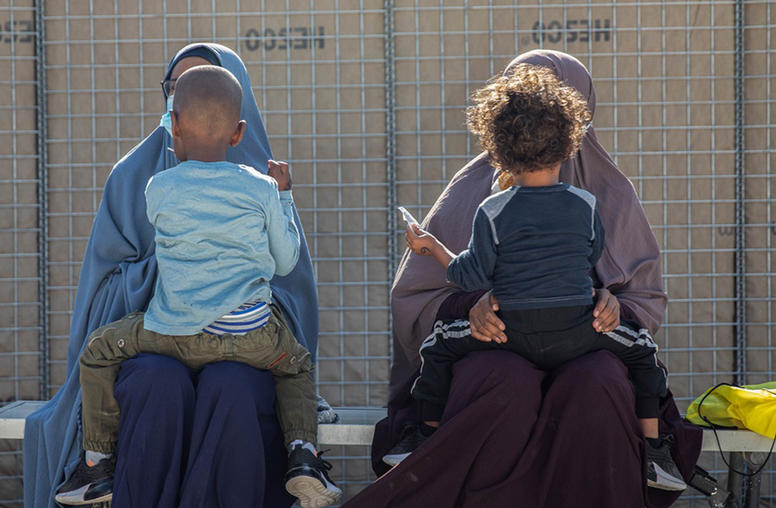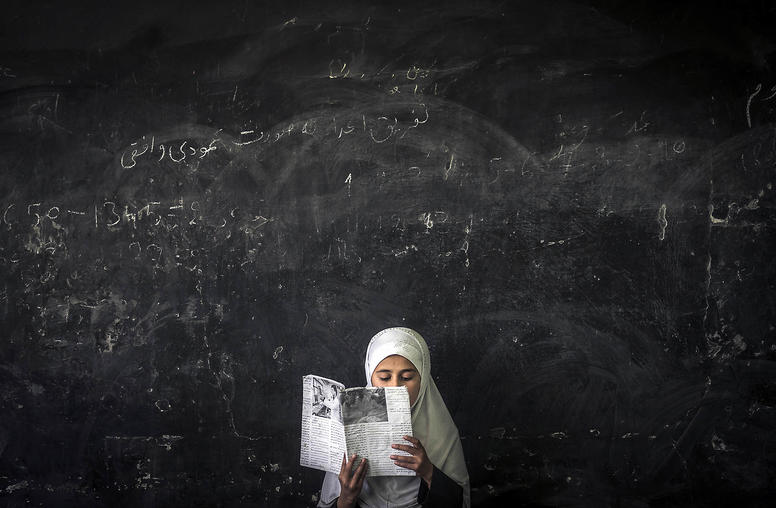Tuesday, April 23, 2024

The Latest @ USIP: For Myanmar’s Economy to Recover, Military Rule Must End
Myanmar’s February 2021 military coup wiped out almost all the economic progress that had been made under civilian rule. Today, the country’s economy remains completely devastated, with the national currency having lost 30 percent of its value amid widespread junta violence and instability. Macquarie University’s Sean Turnell — who served as an economic advisor to deposed leader Aung San Suu Kyi before being imprisoned by the junta for nearly two years — says there’s only one way to solve Myanmar’s economic crisis: military rule must end. And the international community should do all it can to ensure a return to democratic, civilian governance.

The Latest @ USIP: How to Reverse Latin America’s Governance Crisis
Despite massive democratic progress over the last 40 years, Latin America is currently experiencing a governance crisis, with extreme polarization and diminished public trust in institutions. Michelle Muschett, the regional director for Latin America and the Caribbean at the U.N. Development Programme, discusses how peacebuilding and development practices can help restructure governance institutions to meet people’s needs — with a special emphasis on increasing youth’s participation in political and civic life.

The Latest @ USIP: What China’s Nuclear Advances Mean for India
Despite ongoing confrontations along their shared Himalayan border, the India-China nuclear relationship remains fairly stable at this point in time. Both countries maintain a no-first-use policy and officials have not broached the possibility of nuclear escalation. However, China’s expanding nuclear arsenal poses questions for India’s own nuclear posture. The Observer Research Foundation’s Rajeshwari Rajagopalan explains that China’s recent nuclear advances alone haven’t raised alarm in New Delhi — but that Indian leaders should pay special attention to any shifts in Beijing’s no-first-use policy or developments in first-strike options.

The Latest @ USIP: Climate Change is Driving Migration in the Horn of Africa
Climate change is already an acute issue in the East and Horn of Africa. Agricultural and pastoral communities are now facing their sixth straight season of drought, and without a way to shield themselves from the impact, they have very few options but to move. Amy Pope, the director general-elect of the International Organization for Migration, discusses how global aid agencies must continue providing life-saving assistance to those already displaced — but should also help vulnerable communities anticipate and mitigate the impacts of climate change to protect their livelihoods and avoid displacement altogether.

The Latest @ USIP: The Future of U.S.-Philippines Relations
The U.S.-Philippines relationship runs deep, with the two countries working together on a host of issues ranging from security challenges in the South China Sea to economic growth and peacebuilding in the Mindanao region. However, climate change has emerged as one of the most pressing challenges facing the Philippines — and the risk for climate-related disasters is only going to intensify in the years ahead. USIP spoke with Philippines experts to discuss the U.S.-Philippines relationship and where it can go from here.

The Latest @ USIP: The Local Aspects of the Global Fragility Act
The best strategy to save lives, disrupt cycles of violence and build lasting peace is to prevent conflicts before they happen. The U.S. Global Fragility Act (GFA) and associated U.S. Strategy to Prevent Conflict and Promote Stability both center this approach within U.S. foreign policy, helping partner countries get ahead of the curve. Assistant Secretary of State Anne Witkowsky discusses how the GFA and the Strategy aim to eliminate the drivers of instability and conflict; why the 10-year GFA plans offer a chance for policymakers to learn and adapt to changing environments; and why those on front lines of conflict are the ones most likely to understand where solutions may be found.

USIP Explains: Al-Hol Camp's Reintegration Challenge Shows ISIS’ Enduring Impact
The al-Hol camp in Syria has become a symbol of the Islamic State’s enduring impact in the region. While most of the 53,000 people still living in the camp — half of which are children under the age of 11 — did not choose to live under ISIS, their reintegration into society remains stalled, in part over their perceived affiliation with the extremist group. USIP’s Sarhang Hamasaeed discusses why the stigma around those living in al-Hol only serves to increase their isolation and vulnerability to malign influence, as well as how the Institute is working with Iraqi government and community leaders to overcome the practical challenges associated with reintroducing displaced people into society.

The Latest @ USIP: Long-term Security in the Pacific Islands
While strategic competition between the United States and China certainly impacts Pacific Island nations, regional leaders are wary of getting lost in higher-level geopolitics at the expense of their own citizens’ security needs. To further build U.S.-Pacific security cooperation, the conception of security needs to expand beyond traditional issues, to include human security challenges such as climate change, economic development and the legacy of nuclear weapons testing in the Pacific. USIP spoke with several regional experts about how the climate crisis is threatening the territorial and economic stability of many Pacific Island nations, why keeping the Pacific a nuclear-free zone should be a security imperative, and what the United States can do to help resolve the region’s longstanding issues in a just and fair way.

International Day of the Girl Is a Cruel Irony for Daughters in Afghanistan
As leaders, activists and families across the world commemorate the International Day of the Girl on October 11, the harsh reality faced by millions of Afghan girls stands in stark contrast to many of the planned celebrations. For 750 days and counting, Afghan girls have been forcibly deprived of their right to education and their future because of the Taliban regime’s repressive policies.

Muslims Condemn Orlando Attack
Across the United States, Muslims swiftly denounced the June 12 attack on a popular gay nightclub in Orlando, which killed more than four dozen people and injured 53. "This is a hate crime plain and simple," said Nihad Awad, Executive Director of the Council on American-Islamic Relations. "We condemn it in the strongest possible terms." The worst mass shooting in U.S. history also drew condemnation from Muslim nations and Islamist parties around the world. American Muslims also expressed soli...
